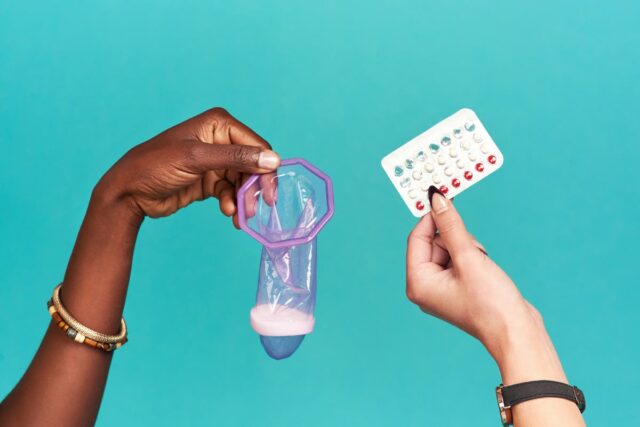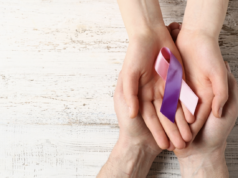
Just reading the words “sexual health” might cause one’s brows to rise. Sex, sexually transmitted infections (STIs), and sexual habits have been viewed as taboo conversation topics, even among friends.
But a lack of information over generations has led to incorrect assumptions and misconceptions about sexual health. This can lead women to ignore symptoms, make decisions without accurate data, and suffer shame surrounding their sexuality. As with so much in life, education is the key to better understanding and better health outcomes.
Page Contents
1. A Lack of Education Can Lead to Dangerous Assumptions
Schools, families, and religious institutions have a history of editing sexual health education at a foundational level. While the appropriateness of some information will depend on age, the impact of less education can be detrimental.
Without accurate information, girls can self-interpret what they hear from friends and the media. Over time, this becomes a game of Telephone, where young women’s understanding of the truth couldn’t be further from it.
These misconceptions can lead to unexpected pregnancies and STIs. These situations can be life-changing and, if left untreated, even life-threatening. Understanding diagnostic and treatment options, like online consultations and at-home STI testing, can help women get the care they need. For more information, you can visit Nurx.
Debunking myths and freely sharing facts with women of all ages are key components to normalizing sexual health conversations. In education settings, fact-based information should be shared at key developmental markers.
For adults, seeking out medical advice and education on sexual health is a lifelong affair. Start candid conversations with trusted friends to begin to address traditionally taboo topics. Bringing issues to the forefront can lead to greater transparency, which can help everyone better understand their sexual health.
2. STIs Can Present Differently in Women

Women stand in particular need of sexual health education because they are more at risk of an unidentified STI. The internal nature of a woman’s sex organs make visual identification more challenging in females than in males. The skin of a woman’s sex organs is also thinner and holds more moisture, making bacteria growth more likely.
The Centers for Disease Control and Prevention has also highlighted the disparities between men and women’s experiences with STIs. A mild itch for a few days can be easily written off or mistaken as a yeast infection. This laissez-faire attitude paired with embarrassment and worry can allow diseases to progress, leading to larger issues.
What’s more, symptoms of diseases like chlamydia and gonorrhea often subside while the infection worsens. If left untreated, these infections can cause long-term damage to a woman’s reproductive organs, sometimes impacting fertility. Other infections can increase the risk of certain cancers and can even pass on to sexual partners and through childbirth. Increased education about STIs, their appearance, and how they can be contracted can help women know what to look for.
3. Education Leads to Empowerment
Imagine the first class on your first day of school. Walking into your homeroom, you may be optimistic but shy, hoping to get a lay of the land quickly. Hopefully, you made fast friends with someone in your row, becoming part of the fold with ease. But what if you were completely blocked out? Imagine how that would impact your experience.
For women without sexual health education, they’re left to piece together information, hoping they got it right without guidance. But when women are educated about how their body works and sexual health, their world expands. Instead of relying on others’ interpretation of fact, they know their own truth.
Historically, women have been disadvantaged when it came to sex education, leaving the decision making and identification of pleasure to men. Over time, this antiquated way of thinking has had detrimental effects on women’s health and their pursuit of intimacy.
Women may also find that increased sexual health knowledge can breed more confidence in themselves and their sexuality. It can provide a positive and supportive mindset around sexual preferences, needs, and desires.
Many women don’t reach their sexual prime until their late 30s or early 40s. Some of this shift is hormonal, but other times it’s tied in with body image and self-confidence. When women can gain self-assurance through knowledge, they can reap the rewards of earlier sexual satisfaction.
4. Understanding Risks Can Lead to More Informed Decisions

Women should feel confident choosing, or not choosing, sexual partners. But old ways of thinking about sexuality still manage to persist in a modern world. As women pursue lifestyles and partners in alignment with their preferences, understanding the risks involved is essential.
Partners bear the responsibility of preventing the transmission of STIs, even if discussing it initially is uncomfortable. However, no one should feel ashamed about a current or prior diagnosis, as STIs are incredibly common and treatable.
Syphilis, gonorrhea, trichomoniasis, and chlamydia are widespread and are curable with medical treatment. If you find yourself with a diagnosis, follow the instructions of your healthcare provider to resolve your infection. Inform recent sexual partners to help them seek out medical treatment and prevent potential transmission to others.
Viral infections like hepatitis B, herpes simplex virus, HIV, and human papillomavirus are incurable, but they can be managed. Understanding how viruses and bacterial infections are spread and managed is a critical part of your sexual health. When you know the risks and how to mitigate them, you can choose partners with confidence.
Prioritize Education and Access to Information to Destigmatize Sexual Health Education
Access to accurate information is essential when it comes to sexual health. Girls and women alike should have a baseline knowledge of how their body works. They should also be taught in an environment where they can feel confident discussing these topics without shame. One wouldn’t expect a homeowner to be clueless of the basics of their home. The same should hold true of the owner of a body.
Consistent and equal education about body basics, potential risks, and what to do in case of illness is essential. When women are educated about sexual health, they can make informed decisions and pursue medical care when needed. Doing so can leave them healthier and happier for life.































